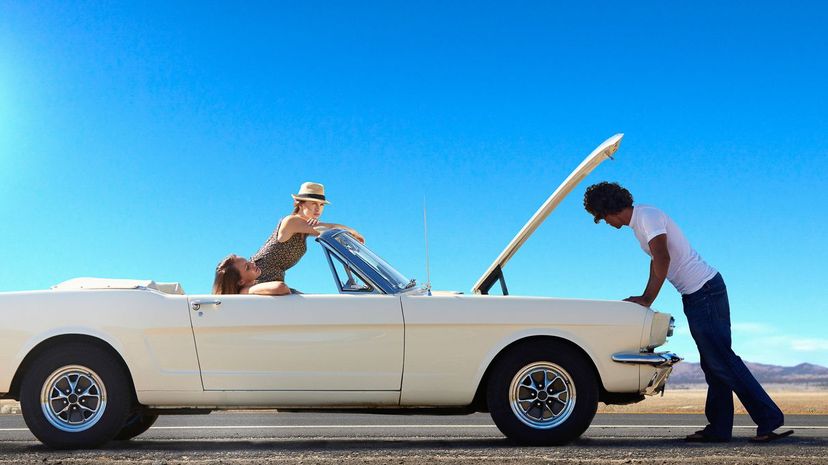
About This Quiz
A car is a pretty complicated piece of machinery that very few of us understand and many of us take for granted. The inner workings of an automobile are a mystery to most drivers, and there are plenty of people on the road who can't even change their tire if they need to, let alone figure out what to do when the radiator overheats or the wipers stop spraying fluid. With sophisticated fuel systems, cooling systems, exhaust systems and a computer keeping everything organized and running smoothly, there's a lot that could potentially go wrong inside your car. When you're not sure you can drive to the garage to get things fixed, what happens when things go wrong on the road in the middle of nowhere? When a radiator hose bursts, what can you do? When your fuel line is leaking, and you're miles from civilization, what's the solution?
Now, none of these fixes are permanent - and some of them are a bit risky - but if it is your only hope in an emergency, then maybe using a pair of pantyhose as a fan belt is a good idea. If you think you know your DIY roadside emergency fixes, then take the quiz and show us your stuff.
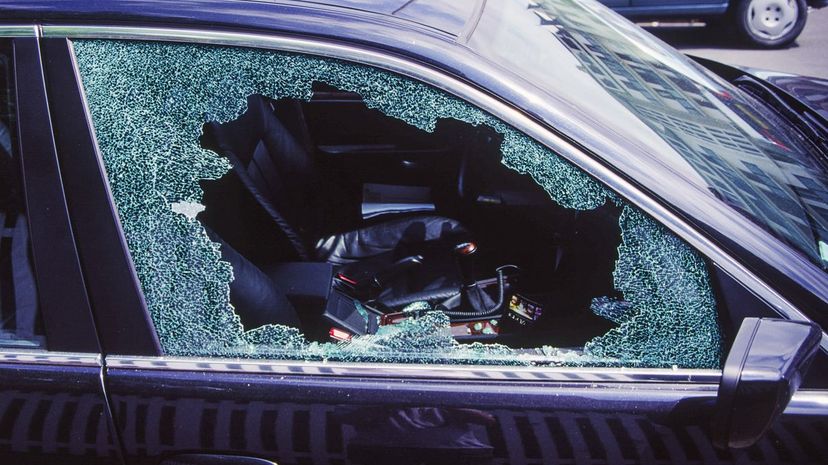
It's not pretty by any stretch of the imagination, but you can duct tape a trash bag over a busted window to stop the howl of the wind from making you go deaf and also to stop it from blowing the interior of your car into a mini tornado. Cut it to fit and tape it down tight.
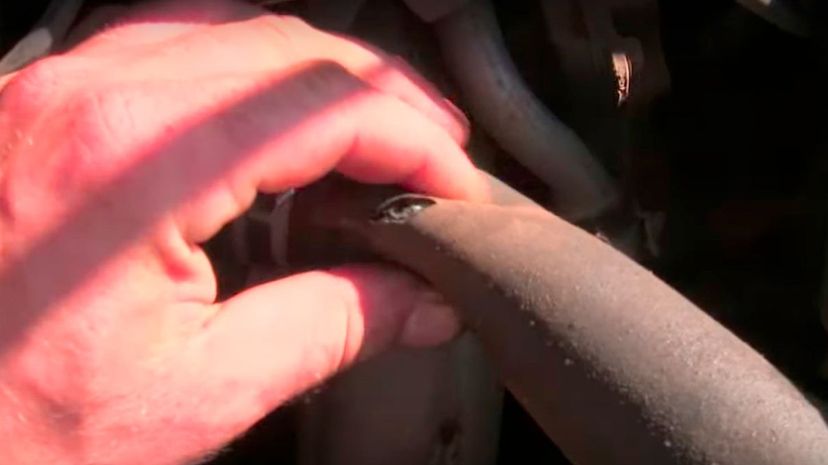
If the end of the hose is what blew out, you can cut the end off if there's enough length, and then reattach and clamp it down. Some silicone tape will help seal the deal to make it pretty solid after that.
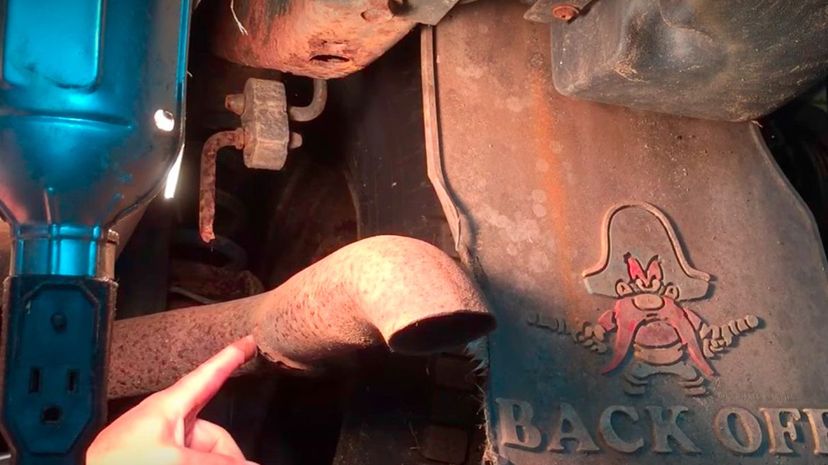
A coat hanger is a quick fix for a hanging exhaust system. It's usually help up by some form of rubber straps, but if those are missing or damaged, let the car cool off and use wire coat hangers. They're easy to bend, strong enough for the job, and they can handle the heat.
Advertisement
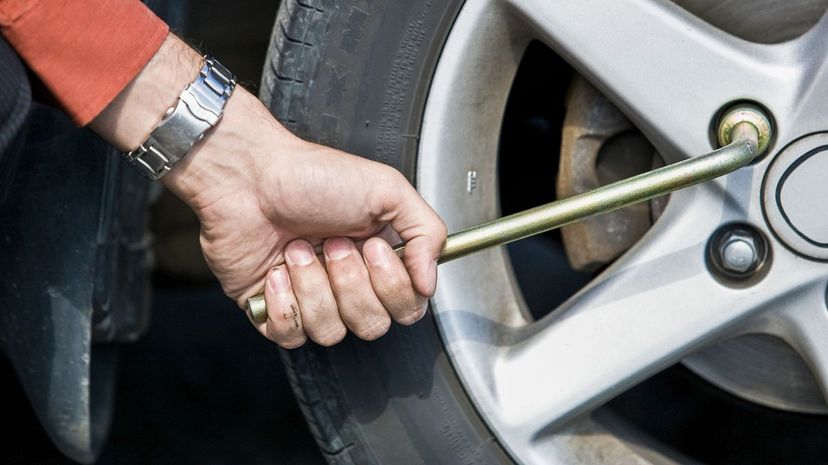
This is an emergency only type of tip, and there's no guarantee it'll work, but if you WD-40 the lugs and then position the leg wrench like a step and stand on it, your weight might be able to work up the force needed to get them moving. Be careful though, this could strip them, or worse, cause you to slip and injure yourself. It's best only done with someone to lend a hand.
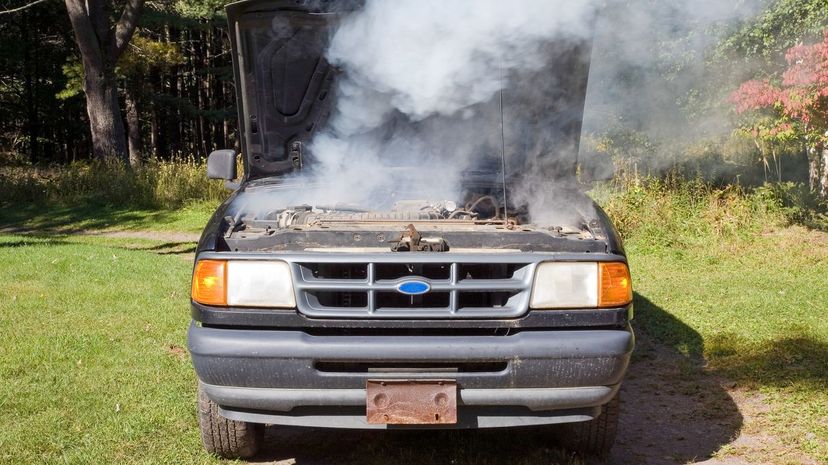
In an emergency situation, if your car starts visibly overheating, then it's good to have an emergency bottle of water in your roadside kit to pour into the radiator. It's also handy if you get stranded in the middle of nowhere and need a drink.
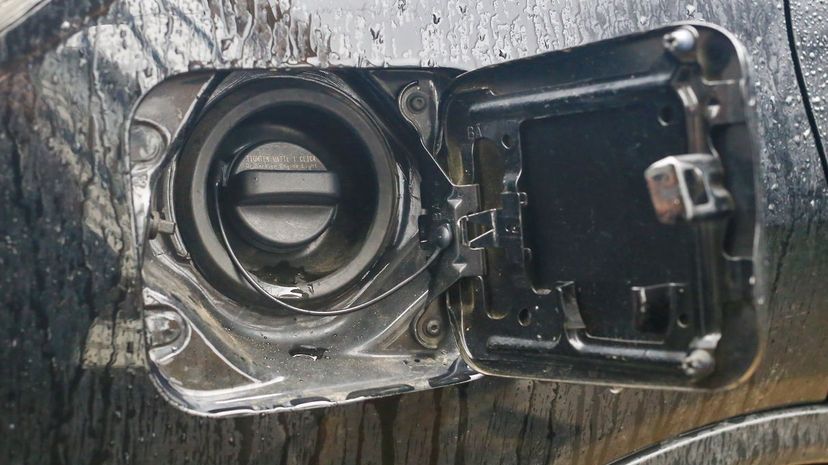
If there's water in your tank, it can cause some serious damage. Adding alcohol can fix the problem by sinking to the bottom of the gasoline and bonding with the water, allowing both to be burned off before it ruins the engine. This is potentially not the best solution if it's the wrong alcohol, though. You want as close to 100% isopropyl alcohol as possible. The lower the percentage, the more water it has in it.
Advertisement

A bag of kitty litter is handy to keep in the trunk if you live or travel anyplace prone to winter storms. Getting stuck in slippery snow and ice can leave you stranded, but litter - the clay kind not the clumping kind - provides traction when you lay it under the wheels and may get you free.

A flashlight is a necessary tool to handle any work you're doing at night. Ideally your best bet is a cranked flashlight, and if you can get a hands-free headlamp version, that's even better because it frees up both of your hands to work on getting your car running again.

Keep a few packs of glow sticks in the car in the event of emergencies. They're cheaper and safer to use than road flares, and they tend to last longer as well. There are lights you can get that cost a lot more, but for the sake of a random emergency, a glow stick will let other drivers see you in the dead of night when you have no lights.
Advertisement
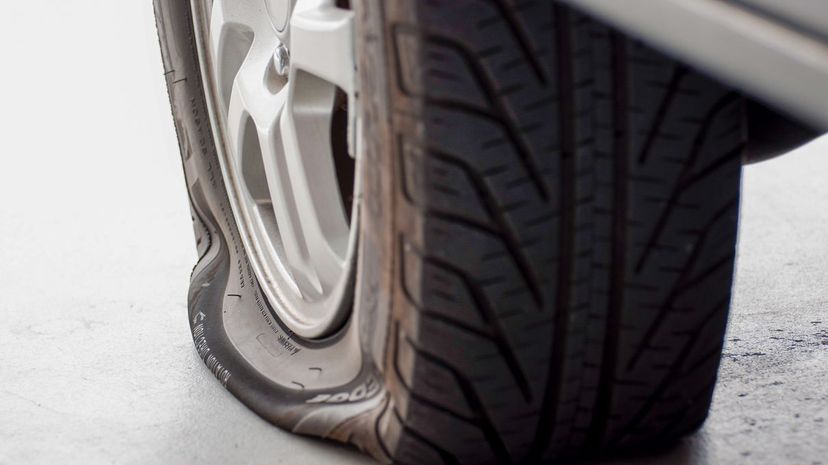
If a tire is slowly but continually losing air, it may have a small, easily repairable hole. Finding it is a lot easier if you spread some dish soap on the tire and pump in a bit of air. Look for the tiny bubble to find the hole.
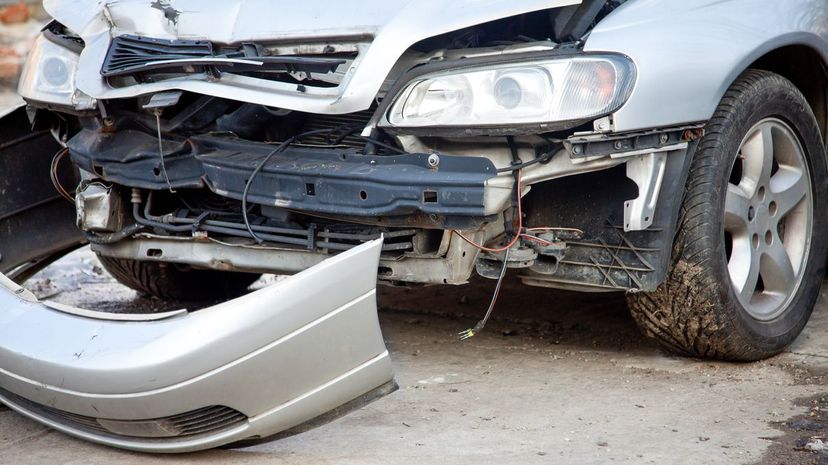
If you got in some sort of accident that damaged your bumper so severely it's hanging down and about to come off, a couple of well-placed bungee cords will ensure it stays put until you can get it properly repaired.
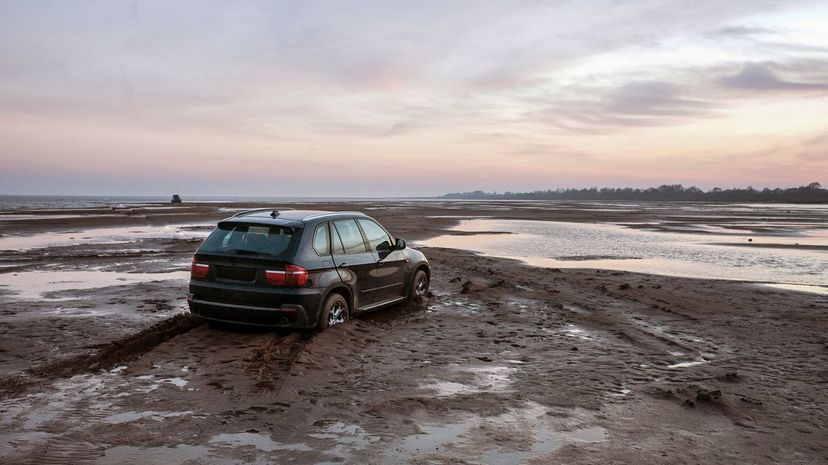
Your best bet for getting unstuck in mud is to rock the car in a low gear. Hit the gas to around 10 to 15 miles per hour, then lay off, let the car rock back, then do it again to build momentum. Shifting back and forth to reverse is a bad idea as it can damage your transmission.
Advertisement
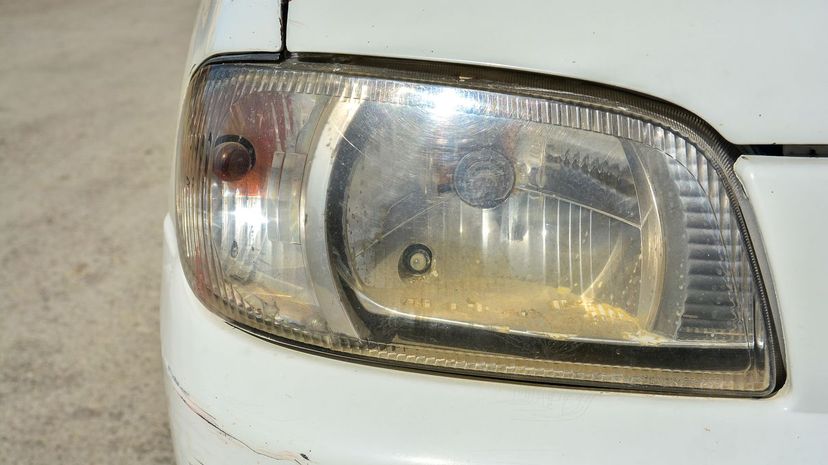
The plastic shell on your headlights can build up an opaque layer over time. A quick buff and clean with some whitening toothpaste will scour away the grunge and get it close to the crystal clear look it had when it was new.
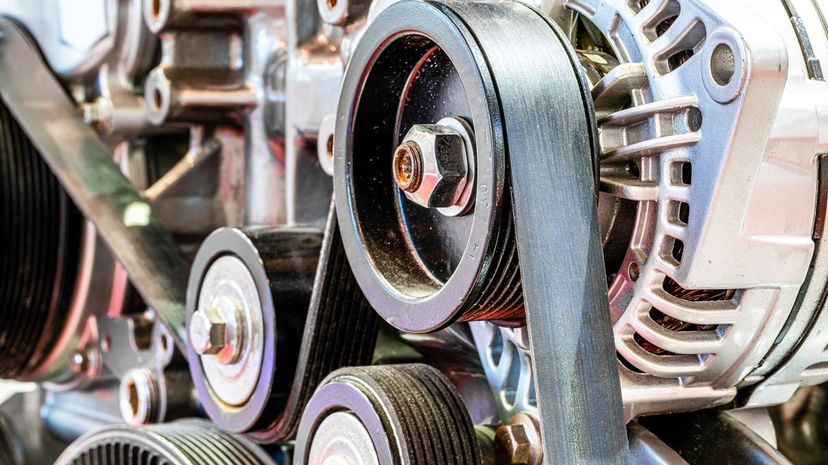
A serpentine belt is not something you should try to replace with anything but a serpentine belt. That said, if it's a dire emergency - you're in the middle of nowhere, maybe your phone is dead - and you need to keep moving, you could try to fashion a new one from duct tape folded over on itself at the exact same length. It may not work, but it just might.
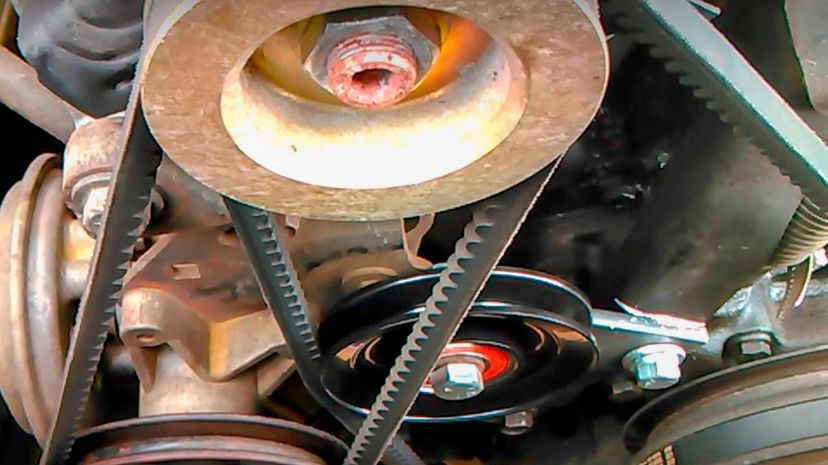
In older cars that used a V-belt rather than a serpentine belt in the engine, a tied pair of panty hose would potentially fill in as a replacement, at least long enough to get you to a garage. This won't work for modern serpentine belts, though, and will probably slip right off.
Advertisement
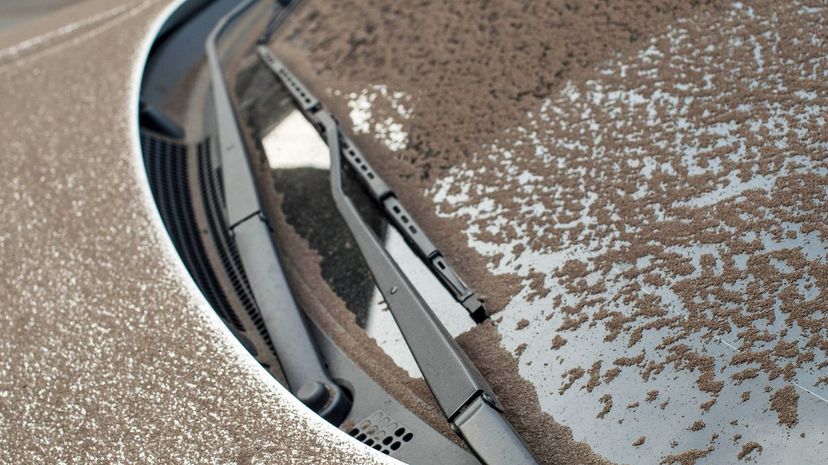
A pin or a needle is a good bet for cleaning out the holes in your wipers that squirt out wiper fluid. Just give them a quick poke to free up whatever may be in there and try to release some fluid as they can get gummed up with things like wax or even just mud.
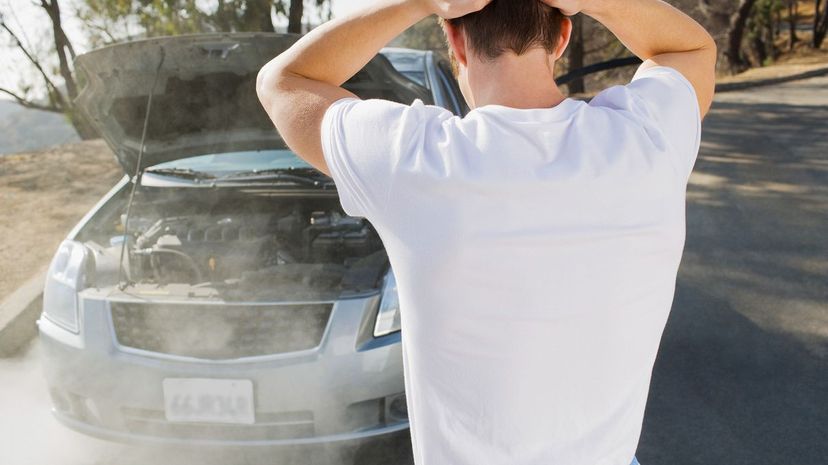
Duct tape is the key for a damaged hose. Wrap the hose in the tape, and add some more coolant to the radiator. You should be able to get a few miles to the nearest garage or repair shop to have it looked at have them replace the hose.
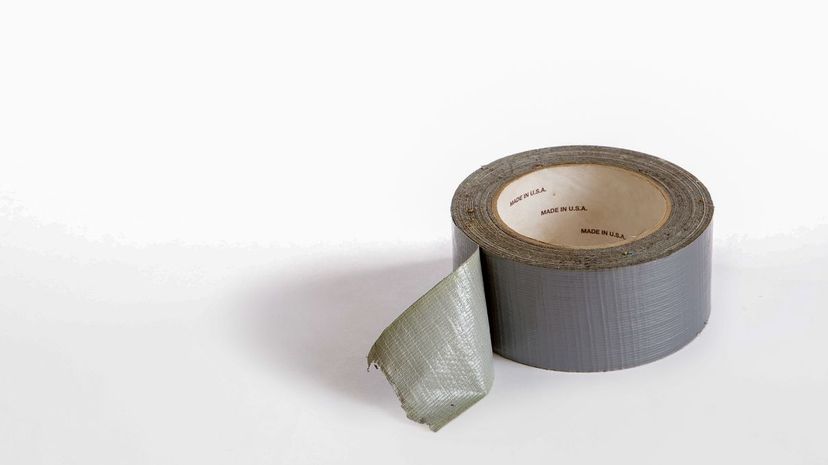
Duct tape is not just super strong, it can also handle temperatures up to 200 F if it's quality stuff. What it can't do is handle gasoline, so you should never repair a fuel line with it. The gasoline will destroy the adhesive.
Advertisement
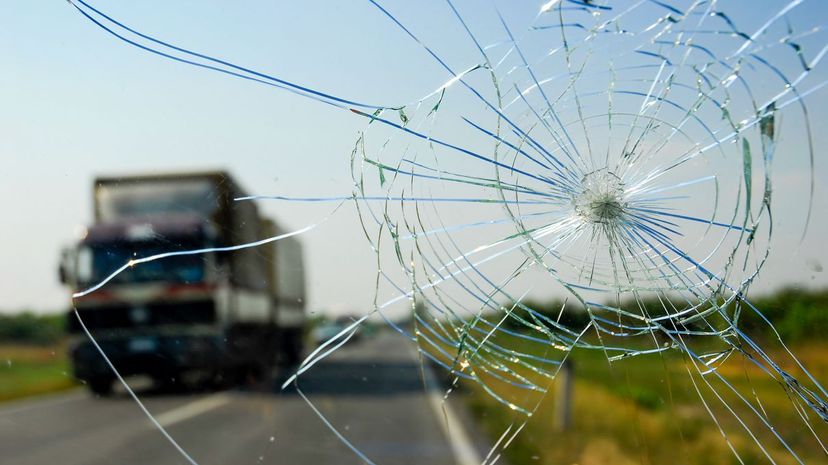
If you get a substantial cack in a windshield and want it to stop before it gets worse, line the crack from the inside of the windshield with duct tape in a criss cross pattern. This should prevent the glass from shattering and, if it does somehow break, it will prevent shards from falling loose.
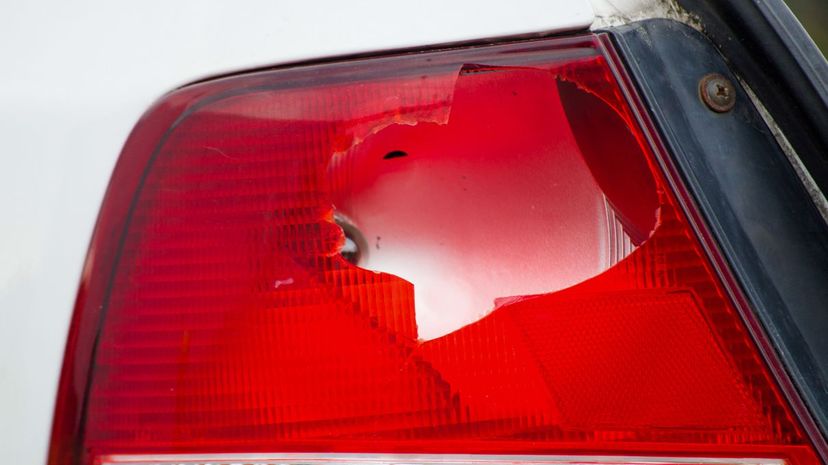
It's always good to have regular duct tape in your car and also a roll of red and yellow tape. If a light gets busted, you can tape it with the appropriate colored tape, and you'll likely be safe to keep driving until you can get it fixed.
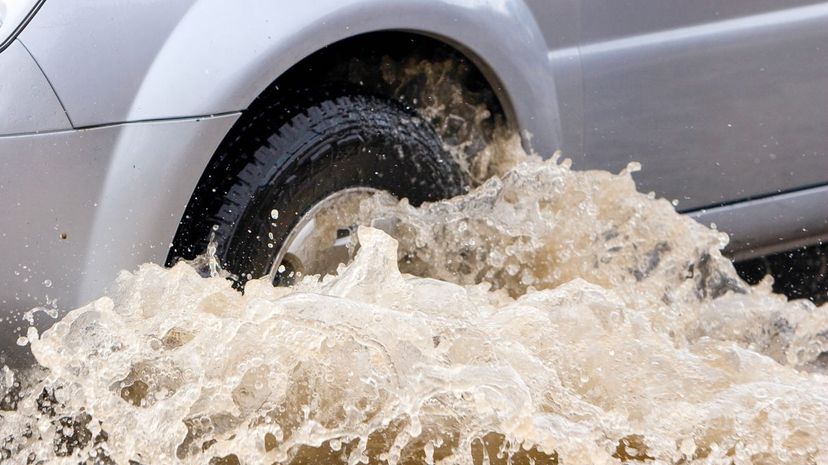
WD40 is a very versatile lubricant, but it has two major advantages when your engine is waterlogged. First, it's not going to catch fire near hot engine parts. Second, the "WD" part of the name stands for "water displacement." It's meant to make water go away, so spraying it on components that you want to keep dry is a good idea.
Advertisement
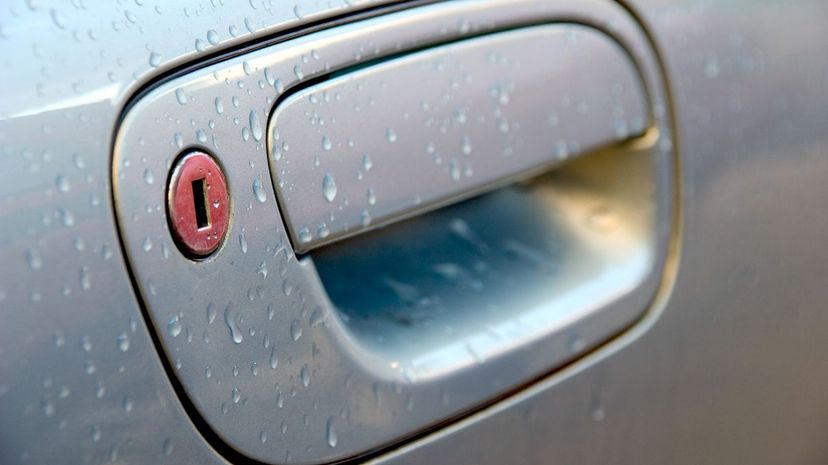
WD-40 is not just a lubricant, it's also a cleaner. If you find your key sticking in the door lock or even in the ignition, you can give it a squirt with the nozzle end of a can of WD-40 to both lubricate and clean the lock out.
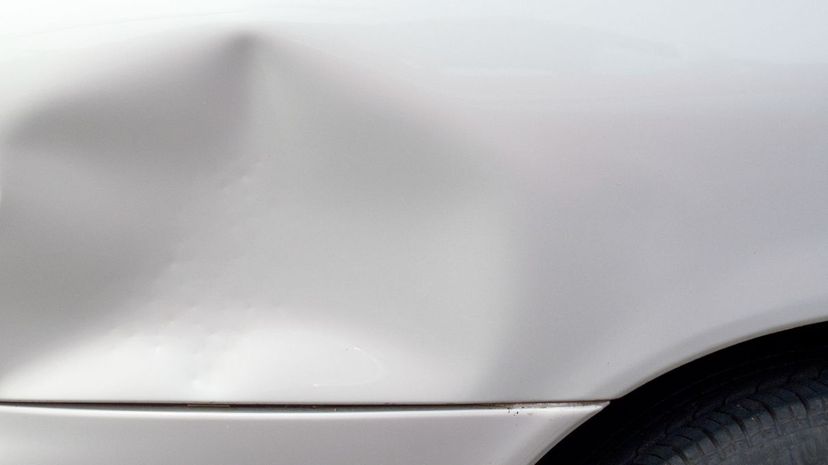
This won't work on every dent and definitely not on severe ones that have created folds, tears, or holes in the panel, but there are some dents for which a plunger will actually do the trick. You just have to create a perfect vacuum seal and pull the panel back out to pop it into place again.
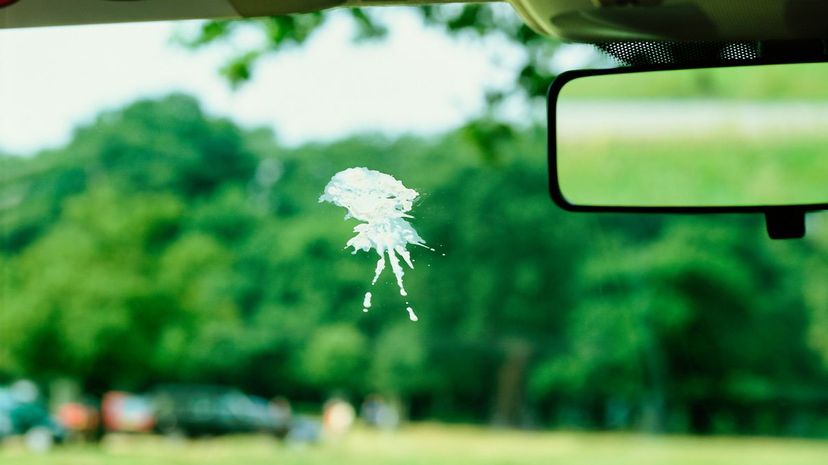
Not everything that hits your windshield is easy to clean off - like bird droppings or various greasy things that resist your wipers and washer fluid. A cloth and some club soda can make short work of many hard-to-clean stains, though.
Advertisement
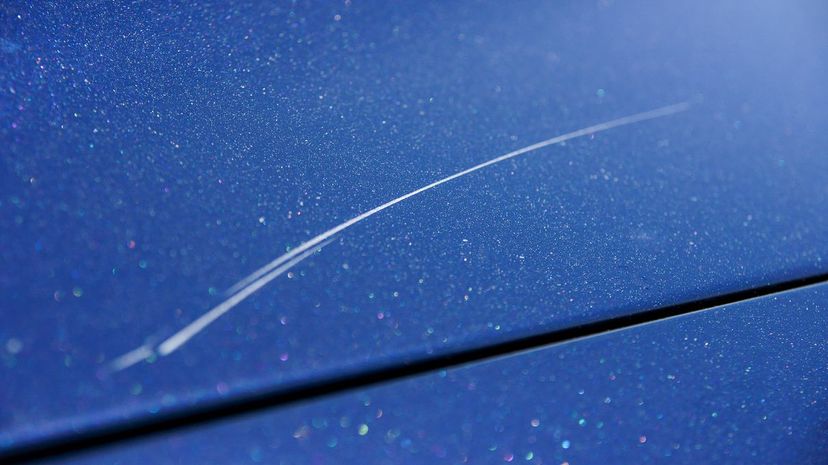
No one likes a car scratch, but some are easier to repair than others. If it didn't fully penetrate the clear coat, a cloth and some toothpaste can be used to buff the scratch out and make it essentially invisible.
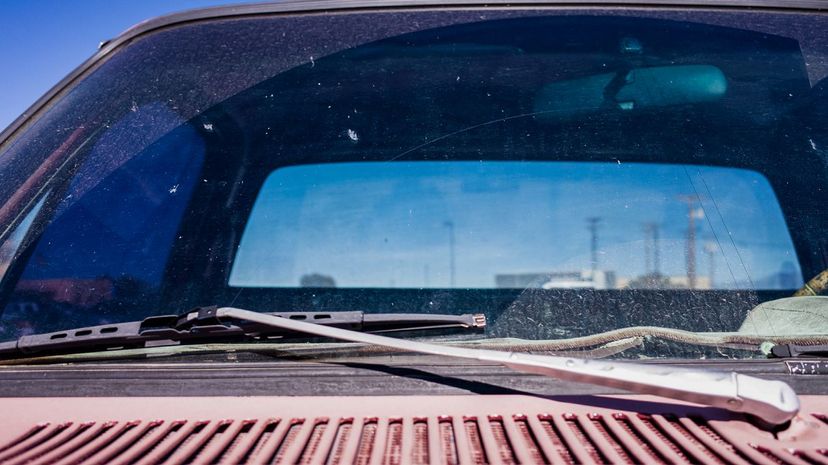
A razor blade is a quick and easy tool to use to clean off some of the most stubborn junk on a windshield. It will scrape off nearly anything and won't scratch the windshield either, making it useful when you have no other solutions on hand.
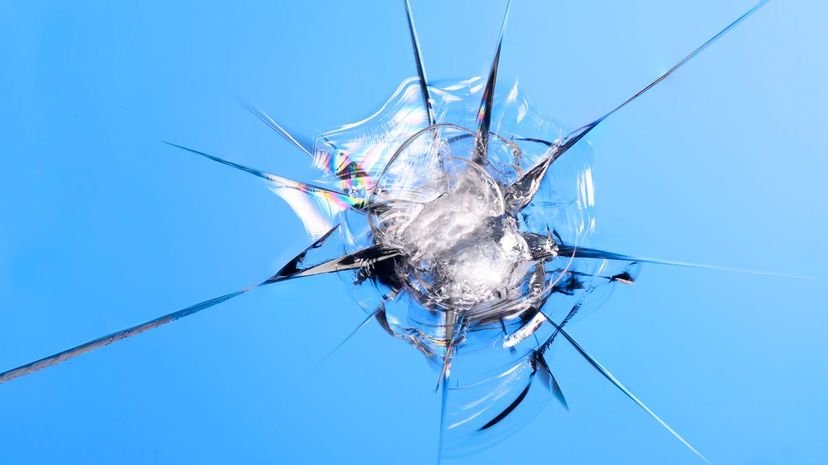
When you have a small crack or chip in a windshield, you can use a coat of clear nail polish to help seal it up and prevent the stress that can cause it to spread out into a larger crack. Just apply evenly around the cracked area and let it dry.
Advertisement
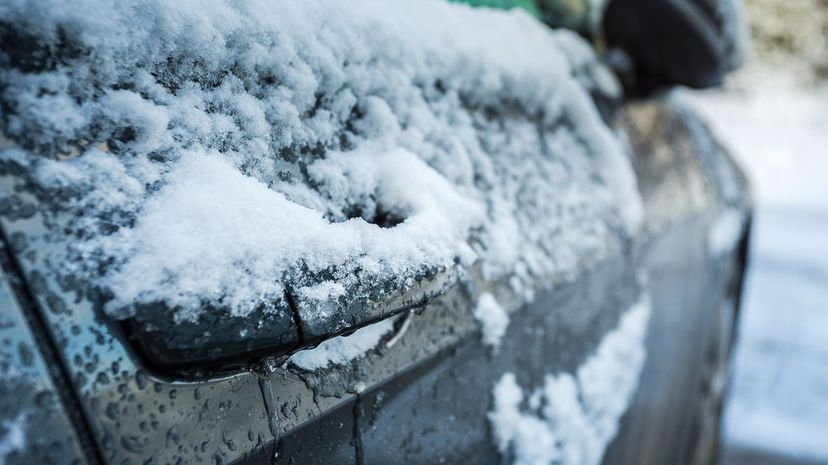
When your lock is frozen, you probably won't want to be running back in the house to get something electrical or mass amounts of hot water, and if it happens out in a parking lot, it's even worse. Fortunately, the alcohol in hand sanitizer is a good way to melt a frosty lock.

There are a lot of ways to get a bumper sticker off, many of which take a lot of time and leave bits behind. A quick and efficient way involves simply soaking cloth or paper in warm water and then applying it to the sticker for about 10 minutes. It should peel right off after that.
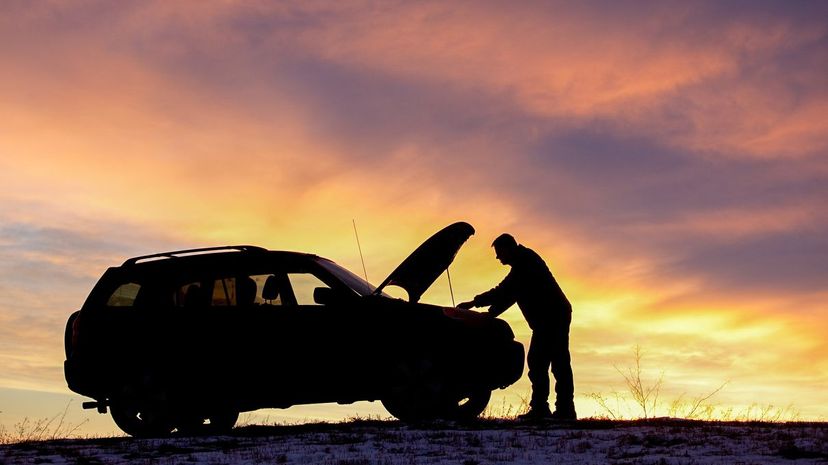
A fuel line leak is a serious issue and is also hard to fix. If you can't call for roadside assistance, and you're nowhere near help, in a serious pinch, you can use a wad of chewing gum to stop the leak and hold it in place with duct tape. It won't last long, and the fuel line needs to be properly repaired immediately.
Advertisement
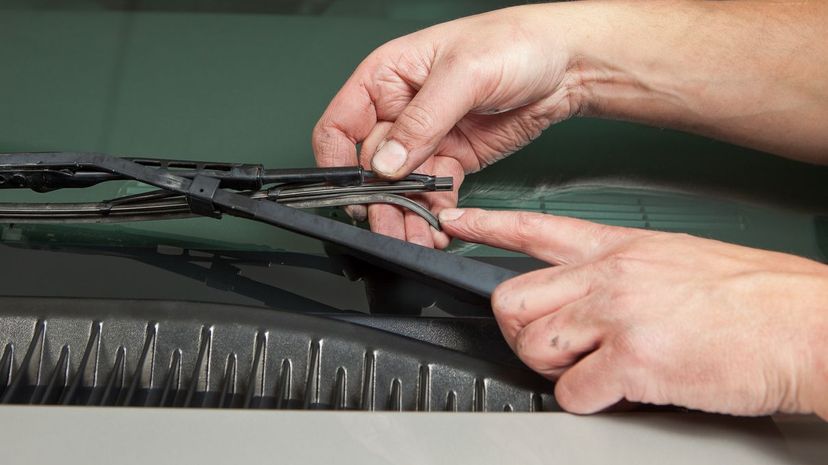
If the wiping part of your wiper is on the fritz, and you can't wipe the rain away, wrap what you have in a sock. It's not even close to a permanent fix, but it should work long enough to get you to a store so you can buy a new wiper.
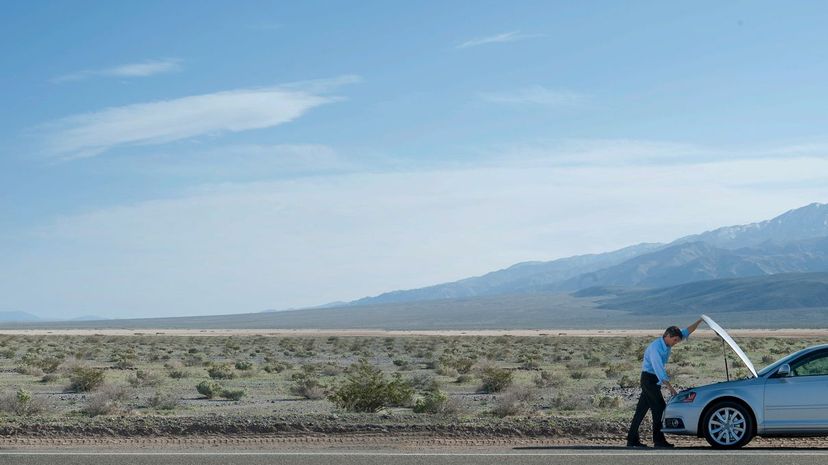
First, please never do this unless it's life or death. That said, if there really is no other solution, you can fill a container with urine and put that in your radiator to try to cool it down long enough to get to a garage.
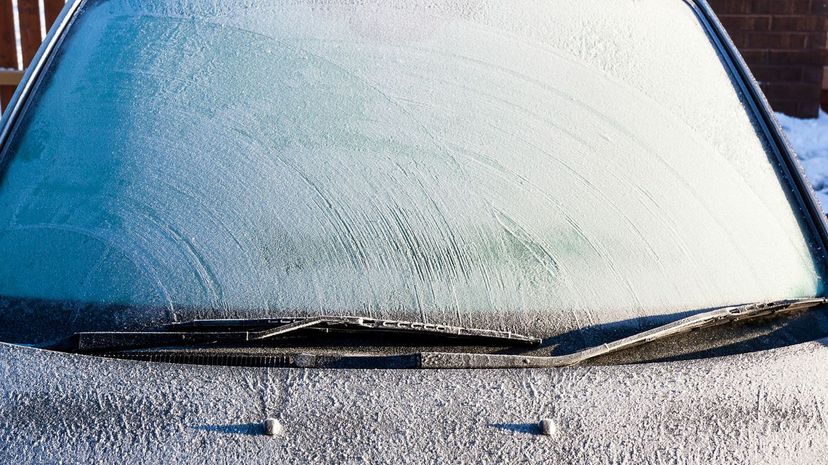
The best part about this trick is that it works before and after the problem. You can prevent ice from forming by treating a window with a vinegar and water mix, or you can use it to help melt ice that's already present.
Advertisement
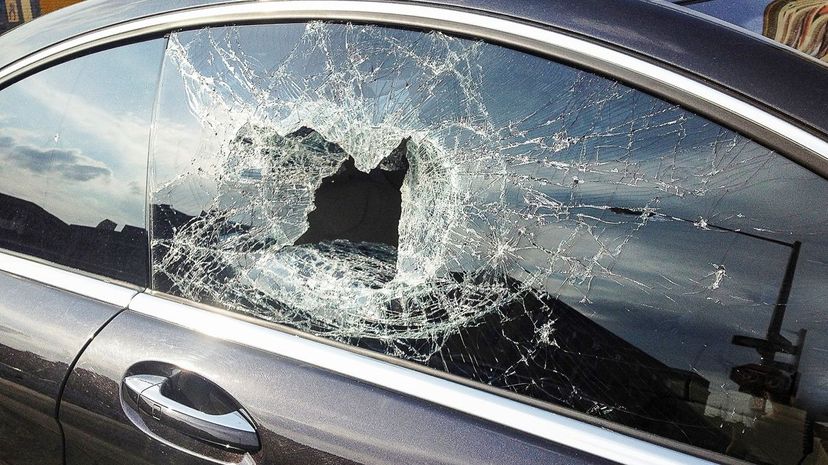
Automotive glass is meant to be shatterproof, so it's harder to break than normal glass. But if you get locked out in the middle of nowhere or, worse, you're trapped inside the car as it sinks in water, you may need to break that glass. The ceramic of a spark plug thrown at a window is incredibly effective at breaking car window glass.
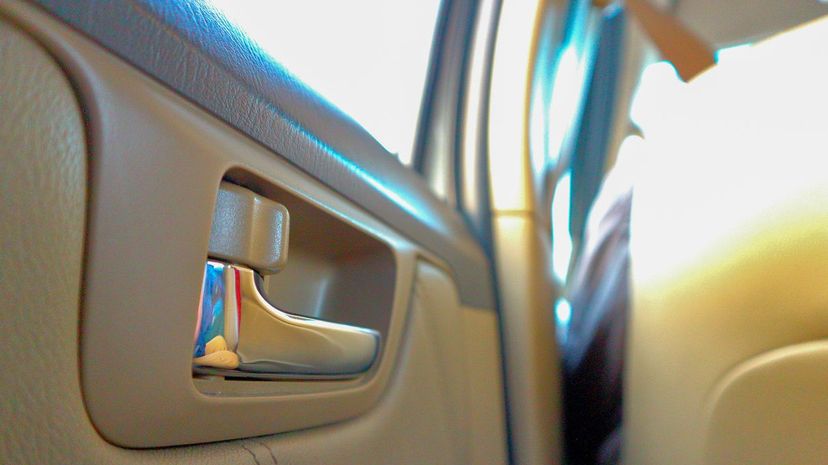
A wedge-shaped piece of wood, like a simple doorstop, and a metal rod stiff enough and long enough to reach from the door to the lock button is all you need for this to work. Force the wedge under the rim of your door near the roof of the car and bang it in with your hand. It's far enough from the lock that it will create a gap small enough to manipulate the metal rod towards the lock button.